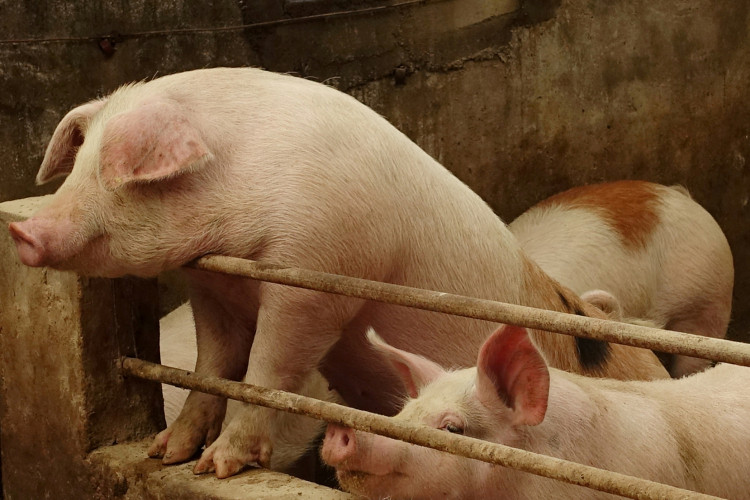The more than doubled price of pork has triggered the biggest spike in monthly consumer prices in China over the past seven years in November.
The National Bureau of Statistics (NBS) revealed consumer prices in November jumped 4.5% year-on-year, the fastest pace since January 2012. It said the price spike was driven mostly by a surge in pork prices due to the raging African Swine Fever (ASF) epidemic. The increase in the consumer price index (CPI) exceeded analysts' expectations of 4.2%. October's CPI stood at 3.8%.
There were some 440 million pigs in China out of the global total of 769 million in 2018. This makes China the leading pork producer worldwide, accounting for 55 million metric tons of pork annually.
ASF, however, reduced China's pig population by half in the first eight months of 2019. The pig population will likely shrink by 55% by the end of 2019, said Rabobank, a leading Dutch multinational bank. China's production of pork has also fallen on account of ASF.
Last week, China waived import tariffs for some soybeans and pork shipments from the United States. Most of the soybeans imported by China go to feeding its massive pig population, which is the world's largest.
"The high CPI would surely have an impact on China's monetary policy, but overall we don't see risks of inflation spike across the board, so current monetary policy with a loosening bias will not be significantly affected," said Liu Xuezhi, an analyst with Bank of Communications.
Analysts agree consumer inflation is rising largely because of the continued surge in pork prices and other meats due to ASF. NBS said pork prices more than doubled year-on-year in November. Retail pork prices were in the region of 55 yuan ($7.81) per kilogram in November, according to the Ministry of Agriculture.
Analysts expect pork will remain in high demand as China prepares to celebrate the Lunar New Year on Jan. 20, 2020. The new year is the peak consumption period for pork. R
Many analysts predict that pork price inflation might be close to a peak because recent government policies to stabilize pork production and support the recovery of pig herds are beginning to show results.
"The month-on-month CPI saw a big drop in November and food price inflation might be 'a spent bullet'. Overall consumer inflation will likely trend down from Q2 next year," said Wang Jun, chief economist at Zhongyuan Bank in Beijing.





